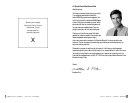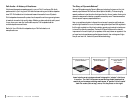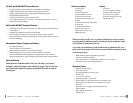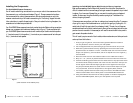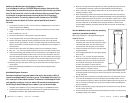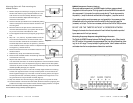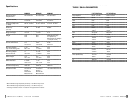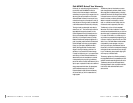
P O L K A U D I O / M O M O D E S I G NA M E R I C A N P O W E R , I T A L I A N F I N E S S E
The Story of Dynamic Balance
®
Your new Polk speakers employ Dynamic Balance, a technology that came out of a joint
research project between Polk Audio and Johns Hopkins University. This laser imaging
research enables us to view the entire vibrating surface of a driver or tweeter, allowing us to
observe the resonances that develop on speaker cones as they move. These resonances are
the root cause of frequency response distortions.
As an x-ray enables a physician to discover the root cause of a symptom and thereby pre-
scribe the right treatment for a cure, this laser imaging technique allows Polk engineers to
find the right combination of high-tech materials, geometry and construction techniques
to tune out the offending resonances. The benefit of Dynamic Balance is the dramatic
improvement in the sound quality of our speakers, which every listener can appreciate. You
no longer have to choose between excellent bass and smooth, clear midrange and highs.
Now you can have it all, thanks to Dynamic Balance technology.
Polk Audio—A History of Excellence
Like the way these great new speakers sound in your car? You’ll love the way Polk Audio
speakers sound in your living room! Polk Audio has been making world-class loudspeakers
since 1972. Polk’s dedication to fundamental research has resulted in over 25 patents.
Polk loudspeakers have earned the praise of audio experts the world over, garnering dozens
of awards for innovative, high-quality design. Whether you desire audiophile-quality sound
for your home, car or even your multimedia computer, Polk loudspeakers deliver
unmatched performance and value.
See the full line of Polk Audio loudspeakers at your Polk Audio dealer, or at
www.polkaudio.com
Concentric breakup of cone
produces distortion
Radial breakup of cone
produces distortion
Polk “Dynamic Balance”
design results in
low distortion
Laser Interferometry tests produced holographic “photos” of drivers
in motion. The “bad” drivers are experiencing modal breakup that
results in performance-robbing resonances. A “perfect” driver would
look like a cake (flat on top), more, like the photo on the right.




